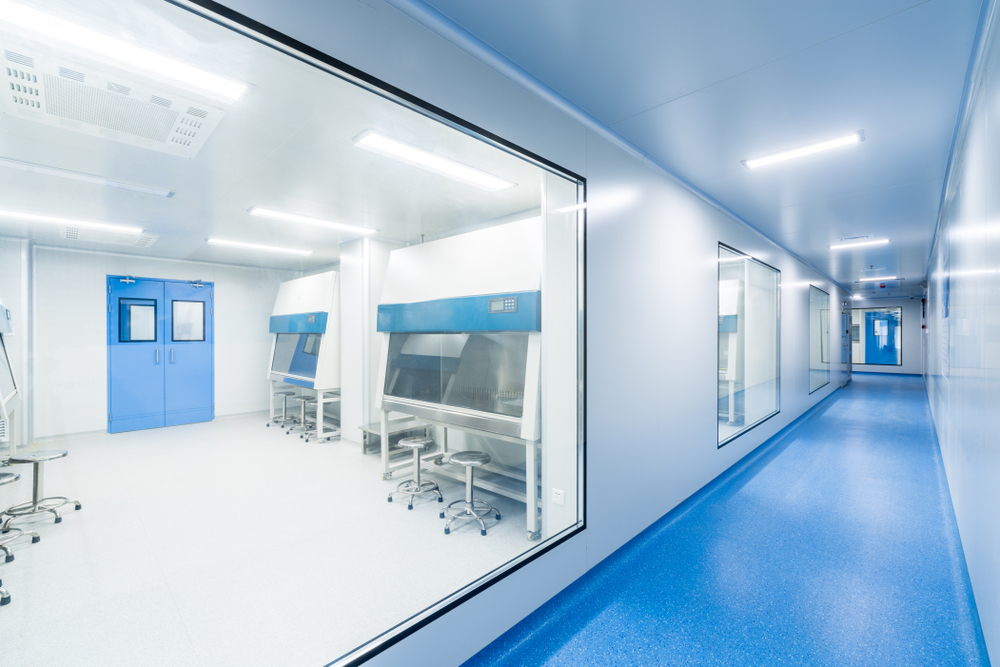
Keep Your Lab Running Smoothly with CO2 Incubator Repair
In research and healthcare, a well-functioning CO2 incubator is more than just a piece of equipment—it’s the backbone of many experiments, cultures, and clinical studies. When an incubator fails, the consequences can be costly, disruptive, and even devastating to critical projects. That’s why Cryostar Industries provides expert CO2 incubator repair in New York, serving schools, universities, hospitals, biotech firms, and private laboratories.
In this post, we’ll explore what CO2 incubators are, what they’re used for, how they break down, and the importance of proper repair and maintenance.
What Is a CO2 Incubator?
A CO2 incubator is a specialized laboratory device designed to create and maintain the ideal environment for cell cultures. These incubators carefully regulate temperature, humidity, and CO2 concentration to mimic the conditions found inside the human body.
Most CO2 incubators maintain a steady temperature of around 37°C, which is essential for the growth of mammalian cells. Controlled CO2 levels—usually around 5%—help stabilize the pH balance of the culture medium.
Key Components of a CO2 Incubator
- Temperature control systems (heating elements, thermostats, and sensors).
- Gas control systems (CO2 injection, regulators, and sensors).
- Humidity control systems (water pans or active humidification systems).
- Sterilization and filtration systems (to reduce contamination risks).
What Are CO2 Incubators Used For?
CO2 incubators are essential across many scientific, medical, and educational fields:
- Medical research – Growing cells for studying diseases, treatments, and vaccines.
- Pharmaceutical development – Testing how drugs interact with cell cultures.
- Biotechnology – Supporting genetic research, tissue engineering, and regenerative medicine.
- Hospitals and clinical labs – Running diagnostic tests that rely on live cultures.
- Universities and schools – Teaching biology and life sciences with hands-on experiments.
How Do CO2 Incubators Break Down?
Even high-quality incubators experience wear and tear. Common failure points include:
Temperature Control Failures
Heating elements, thermostats, or temperature sensors can wear out or malfunction, leading to unstable or inaccurate conditions.
CO2 Regulation Issues
Faulty gas regulators, clogged tubing, or defective sensors can cause CO2 levels to fluctuate, threatening the stability of cultures.
Humidity Control Problems
Cracks in seals, issues with water pans, or malfunctioning humidifiers can cause improper humidity levels, which may dry out cultures or cause condensation that fosters contamination.
Alarm System Malfunctions
Alarms signal deviations in temperature, CO2, or humidity. When alarms fail, small issues can escalate into major problems without warning.
Contamination and Airflow Problems
Damaged gaskets, worn filters, or compromised airflow systems can allow contaminants to enter the chamber, ruining sensitive cultures.
Electrical and Software Issues
Software errors, power supply problems, and electronic control failures can impact modern digital incubators.
The Process of Maintaining a CO2 Incubator
Proper maintenance is essential to extend the life of your incubator and prevent failures. Maintenance tasks include:
Cleaning and Sterilization
Routine cleaning prevents contamination and protects cultures. Many incubators include built-in sterilization cycles, but manual cleaning of shelves, trays, and gaskets is also necessary.
Calibration of Sensors
Temperature and CO2 sensors can drift over time. Regular calibration ensures accurate conditions for cell growth.
Humidity System Checks
Water pans should be filled with sterile water, and active humidifiers should be inspected for proper operation.
Filter and Seal Inspections
HEPA filters, gas filters, and door gaskets should be checked and replaced as needed to maintain a contamination-free environment.
Electrical and Software Checks
Technicians should inspect digital controls, perform software updates, and verify power and system integrity.
Preventative Maintenance Visits
Professional inspections and calibrations help identify potential issues before they result in costly downtime.
Preventative Maintenance vs. Emergency Repairs
While preventative maintenance reduces the risk of failure, emergency repairs are sometimes necessary. Power surges, equipment misuse, or sudden component failures can cause incubators to stop working unexpectedly.
Rapid response is crucial. Cryostar Industries offers emergency CO2 incubator repair services in New York to minimize downtime.
The Cryostar Repair Process
- Assessment – Full diagnostic evaluation of the incubator.
- Repair Plan – Explanation of the issue and repair options.
- Repair & Calibration – Replacement of faulty parts and recalibration.
- Testing – Rigorous testing to ensure performance accuracy.
- Maintenance Recommendations – Guidance to prevent future problems.
Extending the Life of Your CO2 Incubator
- Schedule annual calibrations.
- Replace filters and gaskets before wear causes problems.
- Keep water pans sterile and full.
- Run sterilization cycles consistently.
- Work with trained professionals for service and repairs.
Supporting New York’s Scientific and Medical Communities
From hospitals and pharmaceutical companies to university labs and biotech startups, reliable CO2 incubators are essential for progress. Cryostar Industries helps ensure critical research continues without costly disruptions.
Contact Cryostar Industries for CO2 Incubator Repair in New York
If your lab is experiencing CO2 incubator problems, don’t wait. Cryostar Industries provides expert CO2 incubator repair in New York for hospitals, universities, and research facilities.
Contact Cryostar Industries today to schedule a repair or preventative maintenance visit and keep your lab running smoothly.
| Call for Immediate Lab Services |
|---|
| Long Island, Nassau & Suffolk County Call: 516-333-4006 |
| The Bronx, Manhattan, Brooklyn, Queens, & Staten Island Call: 718-885-0833 |
| Albany & Southern New York State Call: 800-564-5513 |
| Piscataway, Northern & Central New Jersey Call: 800-564-5513 |
| Danbury Connecticut & Surrounding Areas Call: 203-748-7343 |
24/7 Emergency Service |